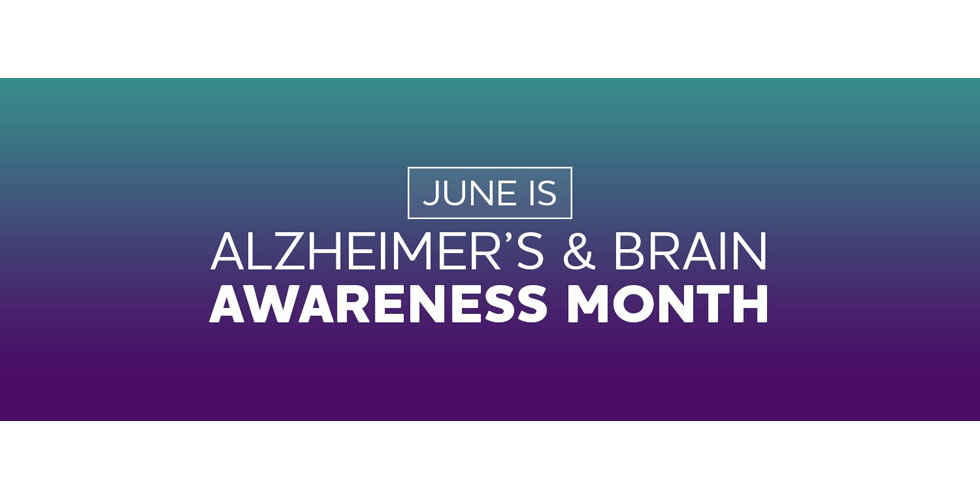 Special Alzheimer’s & Brain Awareness Month classes include COVID-19 & Caregivers, Alzheimer’s and Dementia Research, and Healthy Living
Special Alzheimer’s & Brain Awareness Month classes include COVID-19 & Caregivers, Alzheimer’s and Dementia Research, and Healthy Living
Raleigh, N.C. – The Alzheimer’s Association, Eastern North Carolina Chapter and the Alzheimer’s Association, Western Carolina Chapter are continuing to offer free virtual education programs and online support groups to help all North Carolina caregivers and their families.
The Alzheimer’s Association recognizes Alzheimer’s & Brain Awareness Month (ABAM) in June as an opportunity to hold a global conversation about the brain and Alzheimer’s disease and other dementias. To continue to bring awareness during ABAM, the Alzheimer’s Association is offering virtual education programs to highlight COVID-19 & caregivers, Alzheimer’s and dementia research, and healthy living.
COVID-19 and Caregiving
This program provides simple tips caregivers can put in place whether the person living with dementia lives at home, in a residential facility, or care providers are coming into the home.
Most likely, dementia does not increase risk for COVID-19, the respiratory illness caused by the new coronavirus, just like dementia does not increase risk for the flu. However, dementia-related behaviors, increased age and common health conditions that often accompany dementia may increase risk.
“As we continue with our new normal during COVID-19, Alzheimer’s disease still affects over 180,000 people living with the disease in North Carolina”, said Lisa Roberts, Executive Director of the Eastern North Carolina Chapter. “This program is critical to our caregivers because they need to understand how to navigate through this time with their loved one who needs extra assistance to keep them safe from the coronavirus.”
COVID-19 & Caregiving is being offered on June 4 and June 9.
Advancing the Science: The Latest in Alzheimer’s and Dementia Research
This program looks at Alzheimer’s disease as a global health problem impacting more than 5 million people living with the disease in the US alone. Participants will hear how the problem is being addressed.
“Tremendous gains have been made in the understanding of the science and basic biology underlying Alzheimer’s and other dementias,” said Peggy Best, the Association’s Research Champion in North Carolina. “This program will cover the advances that are leading to great strides in strategies for prevention, detection, diagnostics, and therapeutic interventions. “
Advancing the Science: The Latest in Alzheimer’s and Dementia Research is being on June 16 and June 23.
Healthy Living for Your Brain and Body: Tips from the Latest Research
In this program participants will learn about research in the areas of diet and nutrition, exercise, cognitive activity and social engagement, and use hands-on tools to help incorporate these recommendations into a plan for healthy aging.
Healthy Living for Your Brain and Body: Tips from the Latest Research is being offered June 3, June 15, June 22, and June 30.
Attendees are invited to join via video/webinar or through a toll-free number. There is no charge to participate, but registration is required. For a complete list of upcoming virtual programs or to register for a class, visit alz.org/nc/helping_you/virtual-offerings-(1) or call 800-272-3900. Participants will be sent conferencing details prior to the date of each virtual program.
More than 16 million family and friends, including 479,000 in North Carolina, provide unpaid care to people with Alzheimer’s or other dementias in the United States. To help family caregivers navigate the current complex and quickly changing environment, the Alzheimer’s Association has also offered additional guidance to families at alz.org/covid19help.
For more information, visit alz.org/nc or call the 24/7 Helpline at 800.272.3900.
Additional Facts and Figures: (http://www.alz.org/facts/)
– Alzheimer’s disease is the sixth-leading cause of death in the United States.
– More than five million Americans are living with the disease, including 180,000 North Carolina residents — a number estimated to grow to as many as 210,000 by year 2025.
– More than 16 million family and friends, including 479,000 in North Carolina, provide unpaid care to people with Alzheimer’s or other dementias in the United States.
– In 2019, friends and family of those with Alzheimer’s in North Carolina provided an estimated 545 million hours of unpaid care, a contribution valued at $7.15 billion.
About the Alzheimer’s Association:
The Alzheimer’s Association is the leading voluntary health organization in Alzheimer’s care, support and research. Our mission is to lead the way to end Alzheimer’s and all other dementia — by accelerating global research, driving risk reduction and early detection, and maximizing quality care and support. Our vision is a world without Alzheimer’s® and all other dementia.
About the Alzheimer’s Association – Eastern North Carolina Chapter:
The Eastern North Carolina Chapter provides patient and family services, information and referral, education, and advocacy in 51 eastern North Carolina counties. It offers opportunities to get involved and to make a difference, in addition to a variety of services including: a 24/7 Helpline, support groups, educational programs, and MedicAlert®. For more information about Alzheimer’s disease, or the Alzheimer’s Association, Eastern North Carolina Chapter, visit www.alz.org/nc or call 800-272-3900. For the latest news and updates, follow us on Facebook, Twitter and Instagram.
Submitted by: Christine John-Fuller, Alzheimer’s Association

